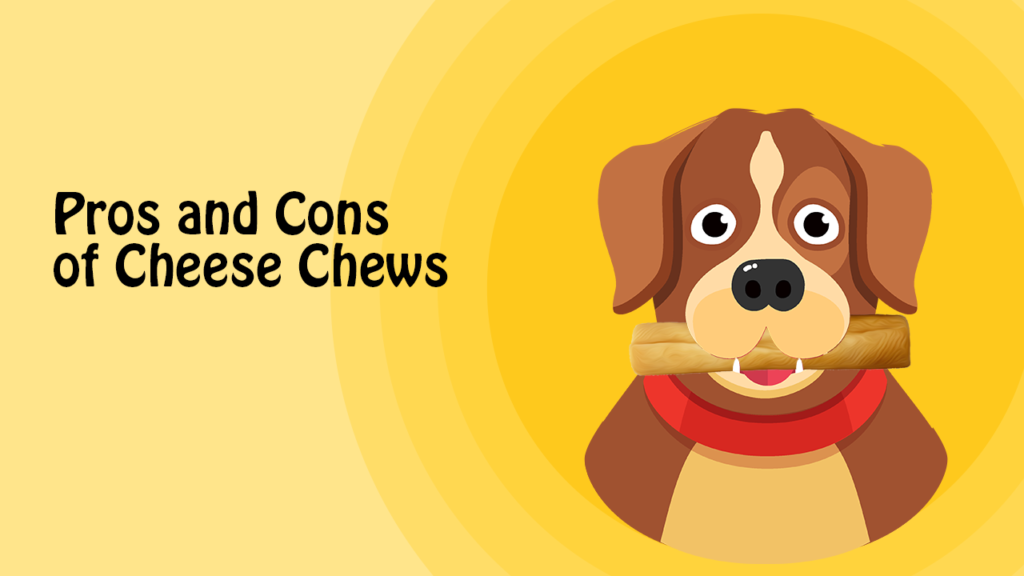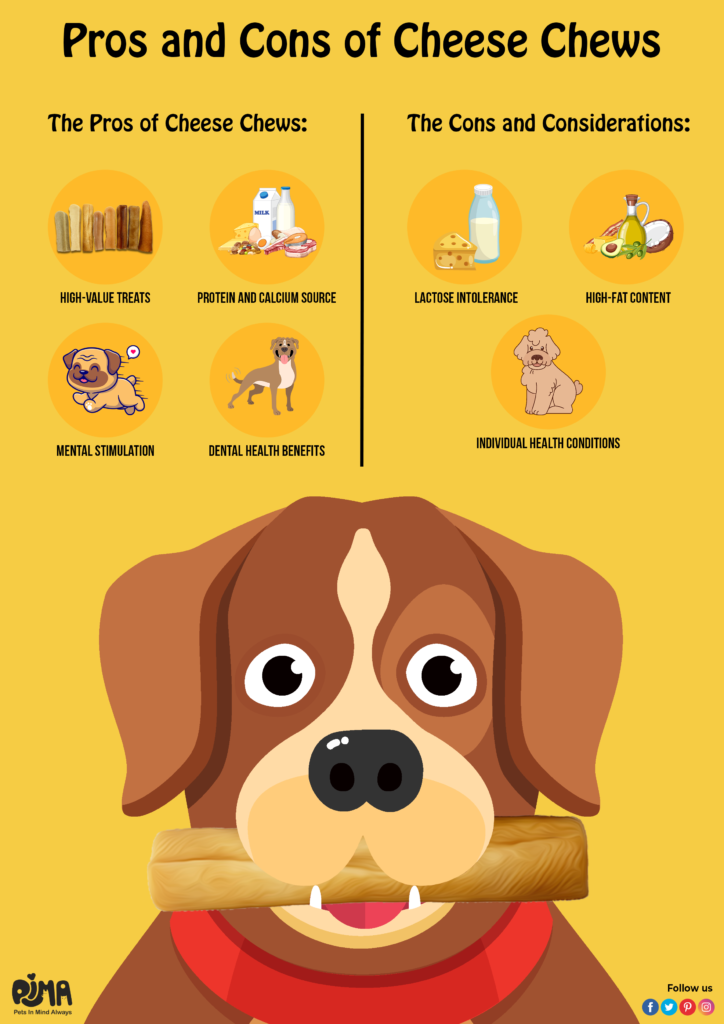

Pros and Cons of Cheese Chews
- Pima Pet
- May 30, 2023
- 7:19 am
- No Comments
Introduction:
As dog owners, we often enjoy sharing our favorite foods with our furry companions. Cheese, with its rich taste and creamy texture, is a popular choice for many pet owners. But is it a healthy option for dogs? In this blog post, we will explore the benefits and potential drawbacks of cheese chews for your dog’s overall health and well-being.
The Pros of Cheese Chews:
High-Value Treats: Cheese chews can be highly appealing to dogs, making them an excellent high-value treat during training sessions or as a reward for good behavior. The enticing flavor can make training more effective and enjoyable for both you and your pup.
Protein and Calcium Source: Cheese is a source of protein and calcium, which are essential for your dog’s growth, development, and maintenance of strong bones and teeth. These nutrients play a vital role in supporting your dog’s overall health.
Mental Stimulation: Some cheese chews, like puzzle toys filled with cheese or cheese-based treats, can provide mental stimulation for your dog. These interactive toys can help keep their minds engaged and prevent boredom, especially when you’re away from home.
Dental Health Benefits: Chewing on cheese chews can help scrape away plaque and tartar from your dog’s teeth, promoting better oral hygiene. The mechanical action of chewing can reduce the risk of dental issues and freshen your dog’s breath.

The Cons and Considerations:
Lactose Intolerance: Dogs, like some humans, can be lactose intolerant. Lactose is a sugar found in milk and dairy products, and some dogs lack the enzyme needed to break it down. If your dog experiences gastrointestinal upset, such as diarrhea or gas, after consuming cheese, it may indicate lactose intolerance. In such cases, it’s best to opt for lactose-free alternatives or consult with your veterinarian.
High-Fat Content: Cheese is generally high in fat and calories. While small amounts of cheese chews can be a delightful treat, excessive consumption can lead to weight gain and obesity in dogs. This can increase the risk of various health issues, including joint problems and heart disease. Moderation is key when offering cheese chews to your dog.
Individual Health Conditions: Some dogs may have specific dietary needs or health conditions that require a restricted diet. For example, dogs with pancreatitis or food allergies may need to avoid cheese altogether. It’s crucial to consult with your veterinarian to determine if cheese chews are suitable for your dog’s individual health requirements.
Conclusion:
While cheese chews can be a tasty and enjoyable treat for your dog, it’s important to approach them with moderation and consideration for your dog’s overall health. Cheese can provide protein, calcium, and mental stimulation, while also promoting dental health. However, lactose intolerance and the high-fat content of cheese should be taken into account.
As with any treat or dietary modification, it’s advisable to consult with your veterinarian before introducing cheese chews into your dog’s routine. They can provide personalized guidance based on your dog’s specific needs and ensure that the treats you offer align with their overall health goals.
Remember, a well-balanced and nutritionally complete diet should always form the foundation of your dog’s meals, with treats like cheese chews serving as occasional additions to their enjoyment and training experiences.


